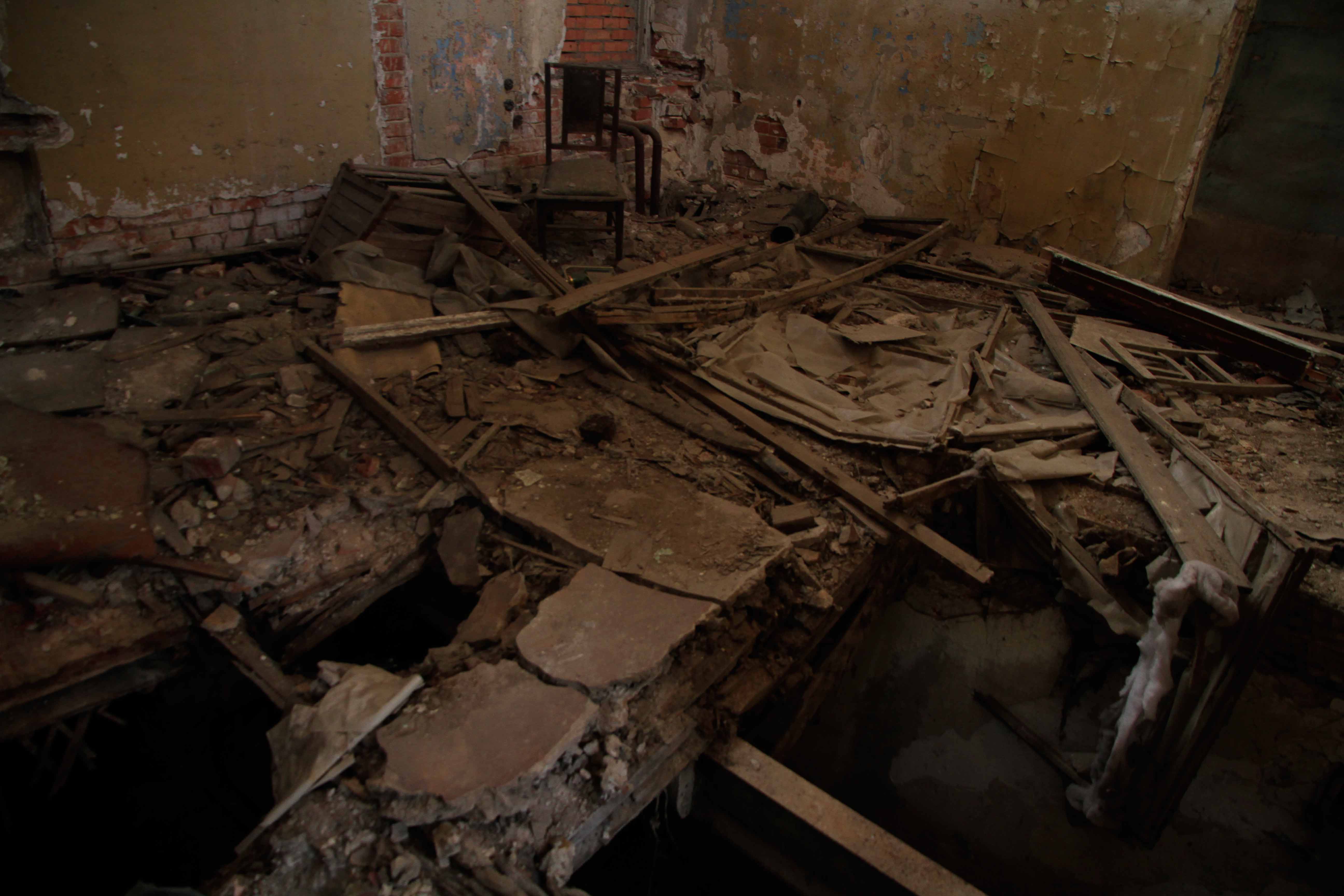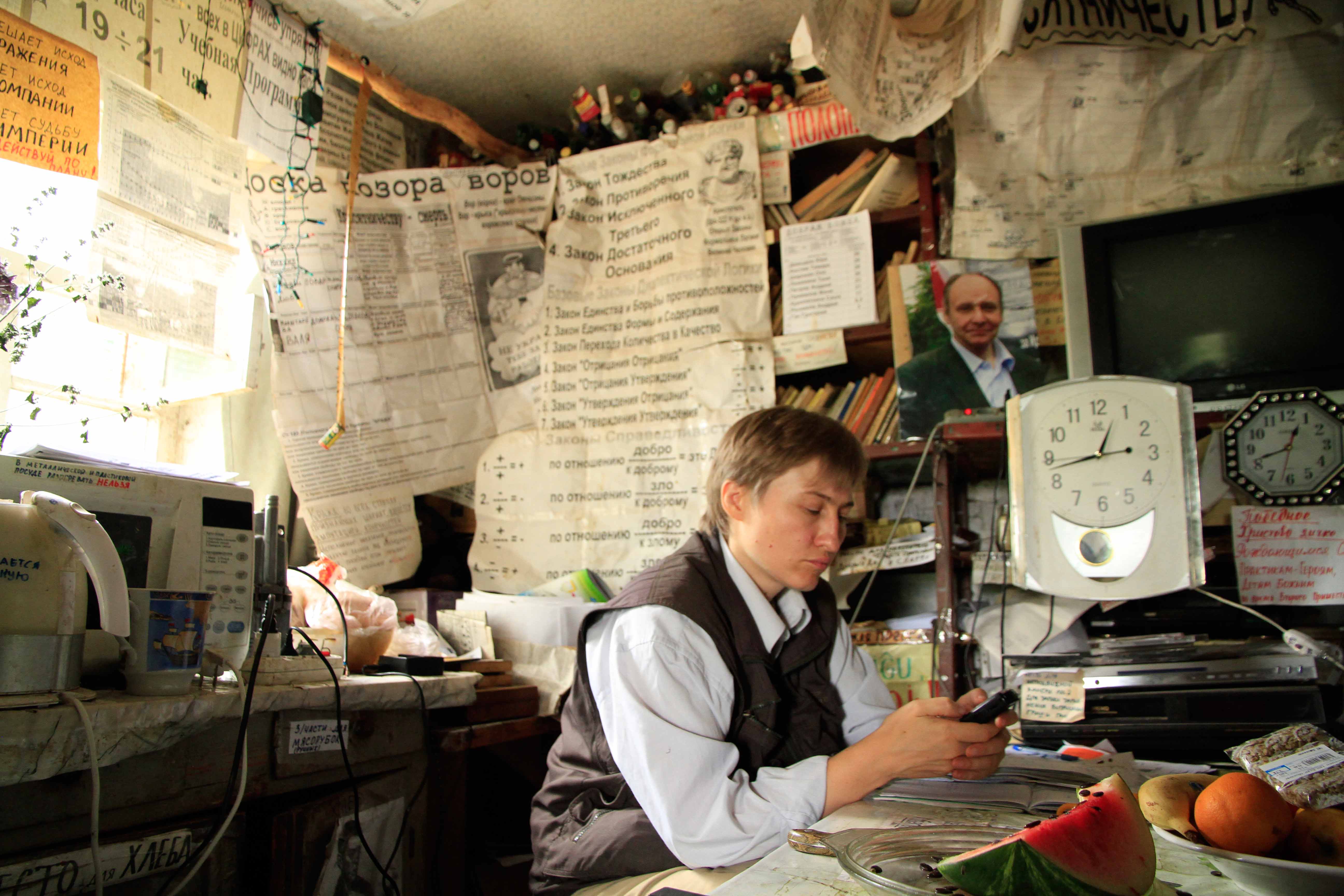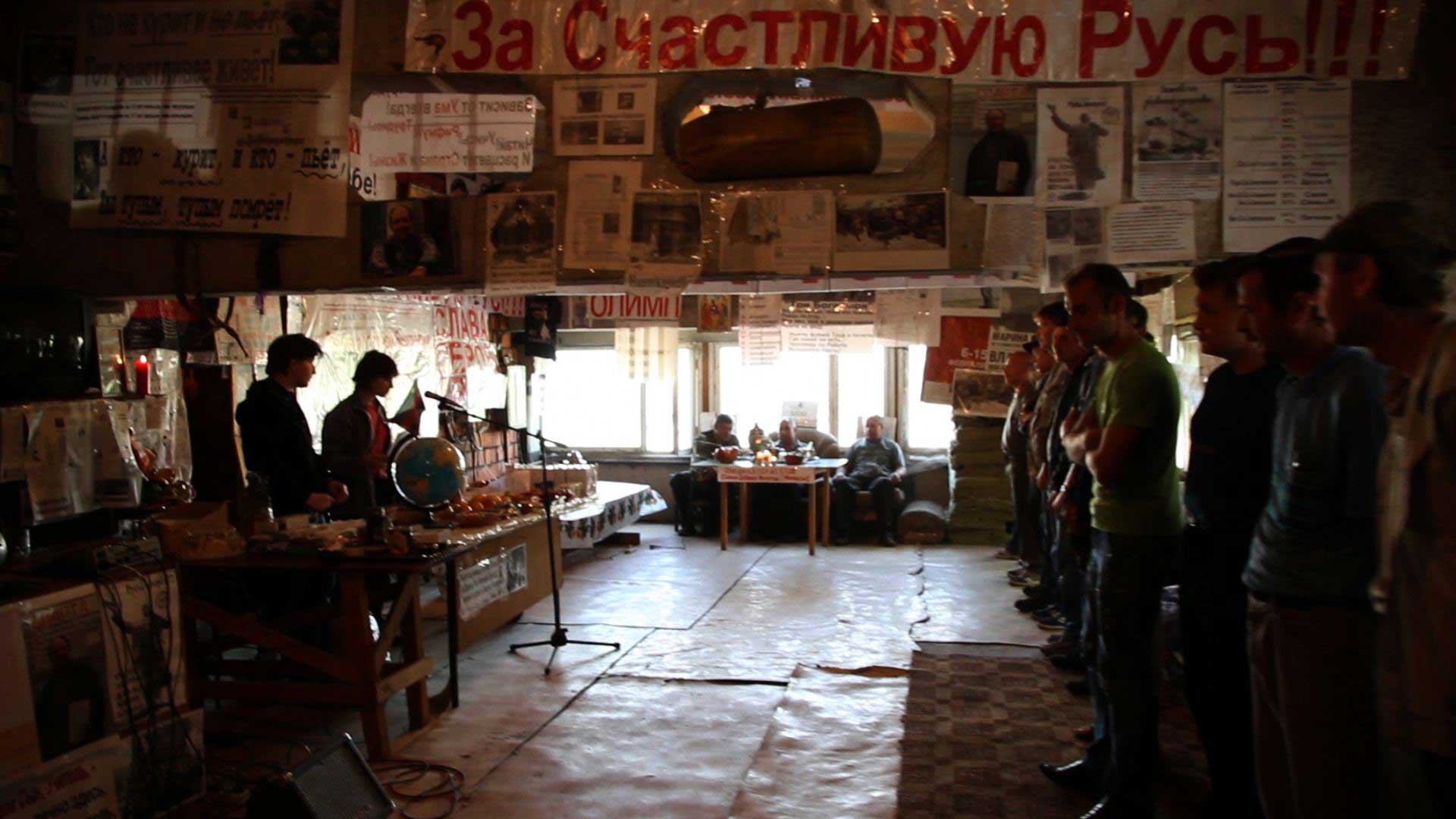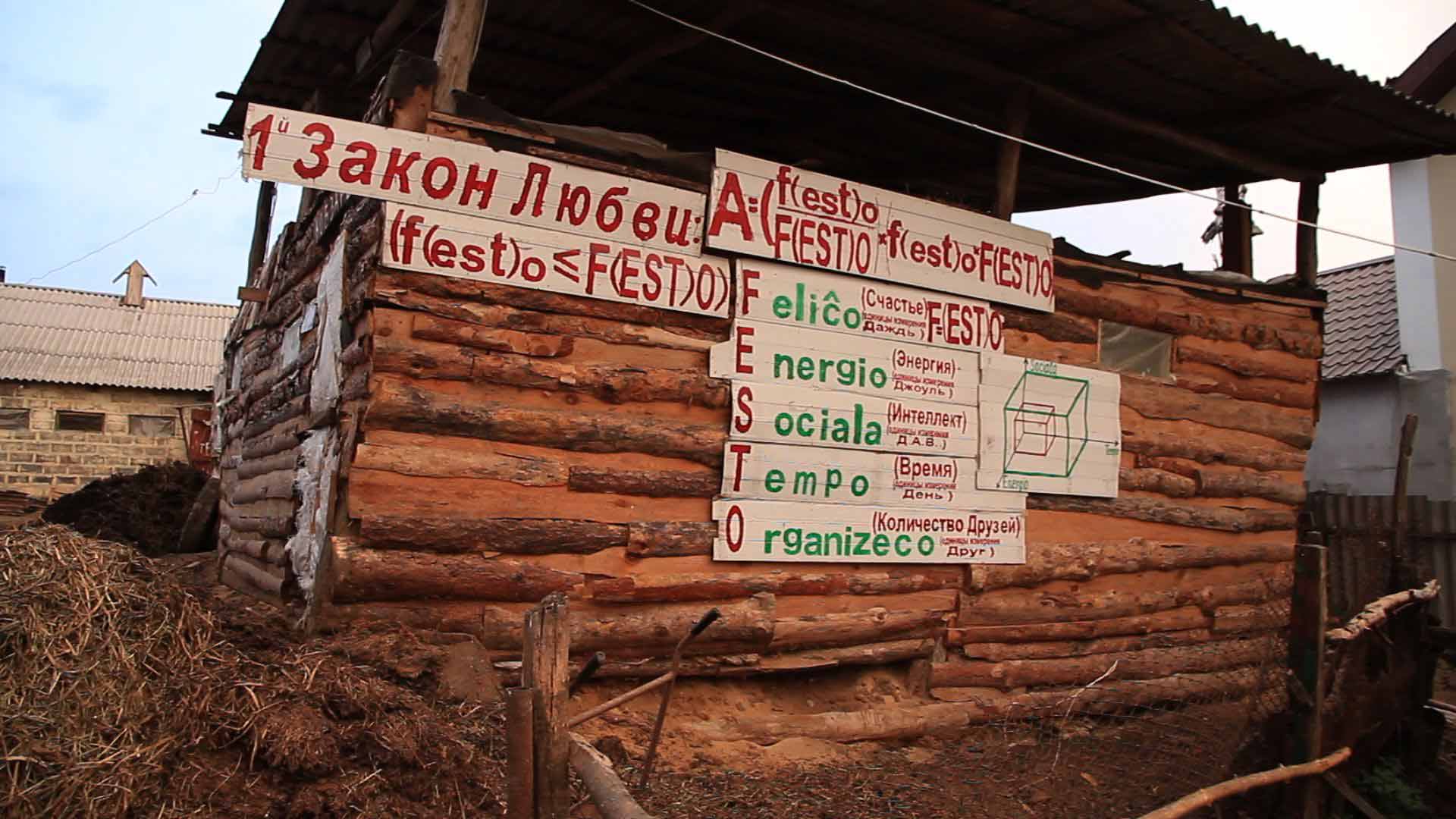
"Theory of Happiness"
The filmmaker explores his membership in a radical Ukrainian sect trying to discover happiness through mathematical formulas
96 minutes. In Russian and English, with English subtitles.
World premiere: Hot Docs International Film Festival, 2014.
Nominated for Best Canadian Documentary.
Screenings in Brussels (Beursschowburg), Prague (Dum Narodnostnih Mensin) and Berlin (PANDA Theatre).
Download an Electronic Press Kit, or order a DVD.
The Film
What is happiness? It is a mathematical formula based on the number of good deeds a person makes during their lifetime, with the subtraction of all their mistakes. How does one find it? One may choose to write poetry to enlighten the masses, learn Esperanto to be able to communicate with the rest of the world, and contemplate the interests of one's nation. How does one avoid making mistakes? The interested candidate must renounce methods of self-destruction, such as swearing, smoking, drinking and sexual intimacy. Only then one may choose to become a real person, a "Theoretician of Happiness," and a member of P.O.R.T.O.S. - the "Poetical Altruists for the Development of the Theory of Universal Happiness."

This feature-length ethnographic film focuses on the eccentric commune that espouses these values, and that has presently settled on a farm in a small village in Northern Ukraine. Members of the commune have a herd of 35 cows, and they subsist by distributing milk to surrounding villages. They live under a strict regimen of discipline and self-sacrifice. Their goal is Universal Happiness.
The Organization

The organization was formed by Yura Davidov in the late 1980s in Moscow. Davidov recruited high school and university students, mostly women, to help build the “City of the Sun,” a utopic community outside of Moscow. However, in December 2000, RUBOP; the Russian Institution for Fighting Organized Crime invaded the City of the Sun. They had supposedly confiscated grenades, mines and rifles. Amongst current members of the sect, five participants were persecuted and jailed, or put into psychiatric institutions for over five years. Ten years later, a current member of the organization, a soft-spoken member of the group was being charged under the same court case, risking a prison sentence of 12 years. It was widely accepted amongst the Moscow dissidents that the affair was entirely fabricated by the Russian authorities, and that due to the group’s naiveté they were unwittingly becoming political prisoners. It was around this time that I arrived to the commune.
